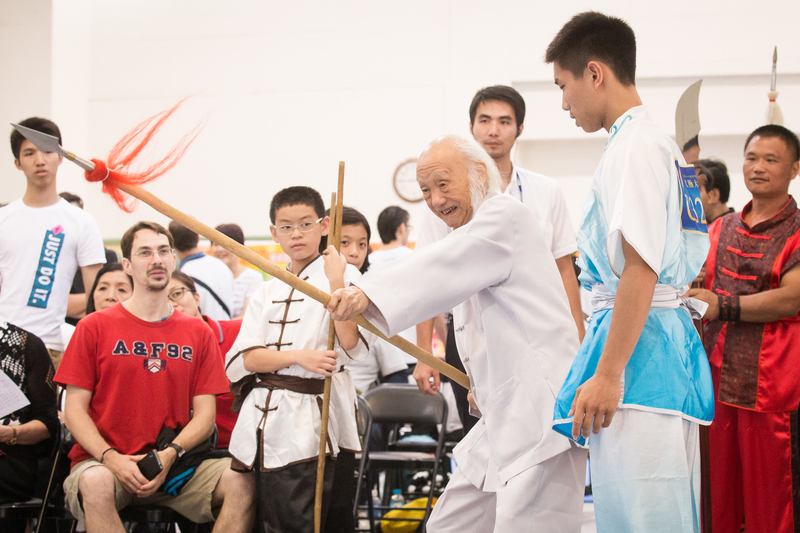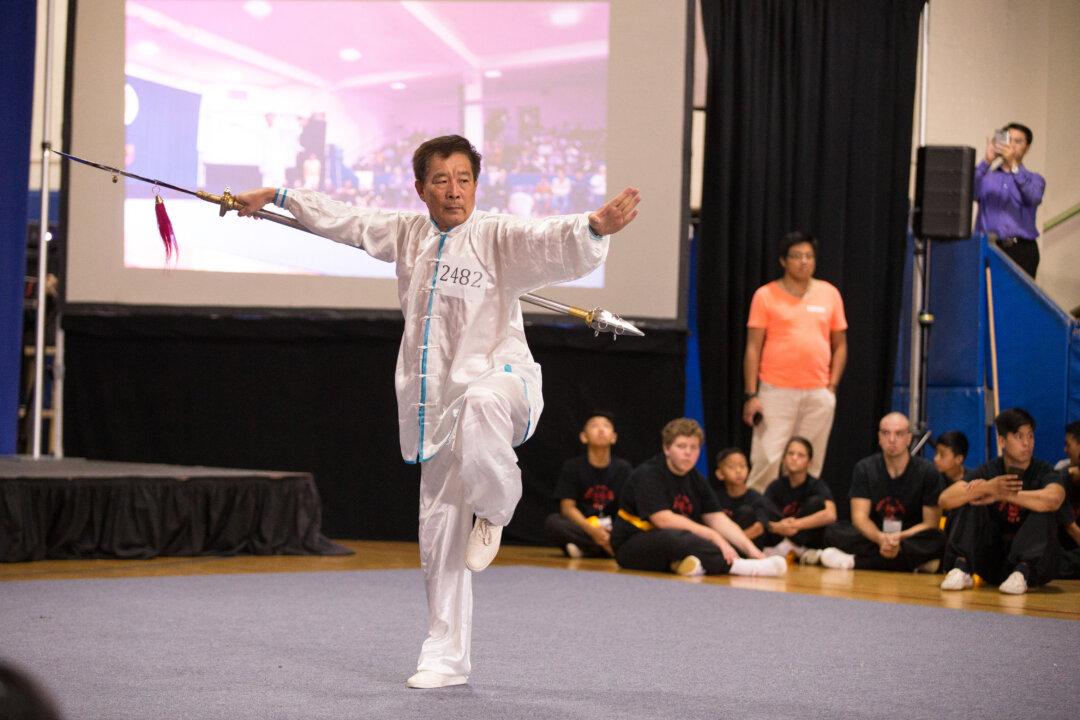At 90, Chao Fu-lin of Taiwan isn’t quite what he used to be, but his skills with the various weapons and methods of ancient Chinese martial arts remain impressive. On a recent weekend at a gymnasium in upstate New York, he moved agilely and gracefully across the floor to a crowd of fans—on the surface partaking in an international competition, but in essence joining a movement to reinvigorate the semi-mystical heart of Chinese kungfu.
From Sept. 17 to Sept. 18 the Chinese-language broadcaster New Tang Dynasty Television (NTD), based in New York, held its fifth International Chinese Traditional Martial Arts Competition in Middletown, a city of 25,000 two hours from Manhattan.
Drawing male and female contestants from eight countries and across 80 years of age, the competition seeks to encourage authentic martial arts, known as “wushu” in Chinese. Contestants performed in armed and unarmed groups, as well as individual or pair demonstrations.
For the wispy sideburn-sporting Chao, who lives in Taiwan but was born in central China at a time when warlords reigned supreme, the event came as an honorable and possibly final opportunity.





